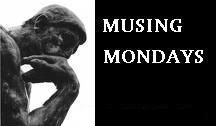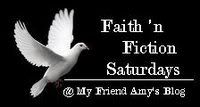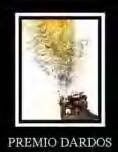 It is time for a FIRST Wild Card Tour book review! If you wish to join the FIRST blog alliance, just click the button. We are a group of reviewers who tour Christian books. A Wild Card post includes a brief bio of the author and a full chapter from each book toured. The reason it is called a FIRST Wild Card Tour is that you never know if the book will be fiction, non~fiction, for young, or for old...or for somewhere in between! Enjoy your free peek into the book!
It is time for a FIRST Wild Card Tour book review! If you wish to join the FIRST blog alliance, just click the button. We are a group of reviewers who tour Christian books. A Wild Card post includes a brief bio of the author and a full chapter from each book toured. The reason it is called a FIRST Wild Card Tour is that you never know if the book will be fiction, non~fiction, for young, or for old...or for somewhere in between! Enjoy your free peek into the book!You never know when I might play a wild card on you!
Today's Wild Card author is:
and the book:
Evolution: The Grand Experiment: Vol. 2 - Living Fossils
New Leaf Publishing Group/New Leaf Press (March 10, 2009)
ABOUT THE AUTHOR:
 Dr. Carl Werner received his undergraduate degree in biology with distinction at the University of Missouri, graduating summa cum laude. He received his doctorate in medicine at the age of 23. He was the recipient of the Norman D. Jones Science Award and is both the author of Evolution: The Grand Experiment book and executive producer of Evolution: The Grand Experiment video series.
Dr. Carl Werner received his undergraduate degree in biology with distinction at the University of Missouri, graduating summa cum laude. He received his doctorate in medicine at the age of 23. He was the recipient of the Norman D. Jones Science Award and is both the author of Evolution: The Grand Experiment book and executive producer of Evolution: The Grand Experiment video series.Visit the author's website.
Product Details:
List Price: $29.99
Hardcover: 274 pages
Publisher: New Leaf Publishing Group/New Leaf Press (March 10, 2009)
Language: English
ISBN-10: 0892216913
ISBN-13: 978-0892216918
AND NOW...THE FIRST CHAPTER:

Chapter 1 – The Bet That Would Change My Life
My lifelong interest in evolution began with an innocuous bet over dinner.
It is said to have a proper story, three essential components are required: a beginning, a middle and an end. While I will adequately provide you with a beginning (my story begins with a bet in medical school), and a middle (which leads to an incredible 30-year journey), I hesitate to say that my story has an “ending” for two reasons. First, I have more information I would eventually like to share with you, (Volumes III and IV of this series); and second, my version of an ending doesn’t really matter. As the author, I would prefer you write the ending. When you finish, you need to ask yourself: Has my perception of the past been changed?
Before I get into the specifics of how I became fascinated with the theory of evolution, you need to understand my background.
I was born in 1959 in a large Midwestern city and raised Catholic. I attended Catholic grade school and high school. Through my early years, I believed in the creation story, and the Bible stories of Adam and Eve, Noah, Moses, etc. I had no reason to doubt them and, of course, no one gave me any other options.
It was in my later high school years, between the ages of 15 and 17, that I found myself drifting away from my religious ideas and beliefs. This was my state of affairs when I was accepted to an accelerated college and medical school at the relatively young age of 17.
My first class in med school was physiology. Here, the professor taught us the evolutionary principle of “Ontogeny Recapitulates Phylogeny” created by Dr. Ernst Haeckel in the late 1800’s.
I had never heard of this concept and neither could I pronounce it. Fortunately, the professor had the class repeat the phrase “On-todge-en-knee Re-ca-pit-you-lates Fi-lodge-in-knee” over and over until we could say it smoothly and efficiently like a machine gun spitting out bullets at a thousand rounds per minute. He proceeded to explain what it meant: Prior to birth, animals retrace the history of evolution in their embryonic stages. For example, humans had their origin in a single-cell bacterium, which evolved into an invertebrate like a jellyfish, then a fish, then an amphibian, a reptile, a mammal, a monkey with a tail, and finally a tailless ape. He then showed us Dr. Haeckel’s drawings of human embryos in various phases of development, such as a single-cell fertilized egg (similar to a single-cell bacterium), an embryo with “gill slits” (similar to a fish with gills) and an embryo with a tail (similar to a monkey).
These drawings were extremely compelling to me, especially the “fact” that humans had gills and a tail. After this lecture, I found myself rapidly accepting evolution.
Years later, I learned that the drawings used to demonstrate Ontogeny were extremely inaccurate. When critics brought charges of extensive retouching and outrageous fudging in his famous embryo illustrations, Haeckel replied he was only trying to make them more accurate than the faulty specimens on which they were based.
Here are some of Haeckel’s errors: (1) Dr. Haeckel made the images of different animal embryos look similar even though the embryos do not appear this way in life; (2) Haeckel referred to neck pouches in the human embryo as “gill-arches,” yet there are no fish gills in the human embryo; and (3) Dr. Haeckel referred to the end of the vertebral column of the human embryo as “a tail” even though these vertebrae coincide with the sacrum and coccyx to which the pelvic organs are attached.
Sadly, I cast my vote for evolution in 1977 based on this faulty evidence. No one in my medical school told me that Haeckel’s drawings were shown to be inaccurate 80 years earlier. Even sadder is the fact that Haeckel’s drawings are still part of some medical school textbooks today.
“The accusation that Haeckel had fraudulently portrayed embryos in the latter part of the 19th century was an accusation that was raised at the time. Many of the medical textbooks today still duplicate the erroneous drawings that Haeckel had portrayed in the 19th century.” – Dr. Daniel Gasman, Professor of History, City University of New York (CUNY). Dr. Gasman is considered an expert on Haeckel.
Four Questions
One year later, in the middle of my sophomore year of college, I went out for pizza with a classmate. In my mind, it was just a social time to chew the fat. While eating dinner, we talked about our classes and friends. Then, for some unknown reason, my classmate began to ask some serious and pointed questions — questions that would forever change my life.
Q: What did I think about evolution?
A: I believe.
Q: What did I think about the problems with the fossil record which cast doubt on the theory of evolution?
A: I didn’t know there were “problems” with the fossil record.
Q: What did I think about the problems with the laws of physics in the big bang model?
A: I don’t know. I had never heard of “problems” with the laws of physics in the big bang theory.
My friend’s last question sunk me. It pertained to an area I was very familiar with, biochemistry.
Q: How could life begin if proteins do not form naturally?
I thought to myself: “He’s got me.” I had studied the chemical equations of proteins and aced them in class, but I had never applied them to the origin of life.
Let me explain.
The theory of evolution suggests that the very first form of life, a single-cell organism, formed spontaneously (or naturally) out of chemicals. But proteins, one of the necessary components for a single-cell organism, do not form naturally. How could life begin if proteins do not form naturally out of chemicals?
A seed of doubt entered my mind that day, and I felt a wave of emotion as I wondered, “Have I been duped into believing evolution?”
“The [physics] formulas we use [in the big bang theory] start giving answers that are nonsensical. We find total disaster. Everything breaks down, and we’re stuck.” — Dr. David Gross, recipient of the Nobel Prize in Physics in 2004. He is the Chair of Theoretical Physics at the University of California, Santa Barbara.
“But there’s always been a couple of problems with the big bang theory. First, when you squeeze the entire universe into an infinitesimally small, but stupendously dense package, at a certain point, our laws of physics simply break down. They just don’t make sense anymore.” — Dr. Brian Greene Professor of Mathematics and Physics at Columbia University.
“No one has ever seen or witnessed a protein molecule form naturally.” — Dr. Duane Gish opposes evolution. He received his Ph.D. in biochemistry from the University of California, Berkeley.
The Bet
Before I could gather an adequate response to the protein problem, my friend fired his last salvo. “Carl, I bet you can’t prove evolution.” I retorted, “That’s crazy. It has been proven!” But he had made his mark. His verbal shot lodged in my brain like a bullet. I thought to myself, “How could evolution be true if one cannot reconcile these important issues?”
His points concerning the formation of proteins and the laws of physics seemed believable, but I wasn’t quite sure I trusted my classmate’s lofty accusations that there were “problems” with the fossil record. How did he know? This was my med school buddy talking, not a paleontologist. He told me that nearly all the animal groups have missing links in their evolutionary history, despite finding millions and millions of fossils. How could this be? I had always assumed the so-called missing links (the fossils portraying one animal type changing into another, such as a dinosaur changing into a bird) are missing because the fossil record was poor. He pointed out the other logical possibility — that the proposed missing links never existed and that was why they had not been found. His reasoning seemed plausible. Still, I was not convinced. I am, by nature, skeptical. But because of the simplicity and eloquence of his arguments, I gave them some credence.
Now I was unnerved. How could there be such fundamental problems with the big bang theory, the origin of life, and the fossil record if evolution was true?
With this casual bet began the adventure of a lifetime, to prove evolution right or wrong. I decided I would review the evidence for the theory of evolution from top to bottom and then devise ways to test it. I felt up to the task because I had been afforded valuable experiences in science and experimentation. From all of these experiences, I learned how to apply the scientific method used to prove or disprove an idea.
By the time I accepted the bet in my sophomore year of college, I had been educated in chemistry, organic chemistry, biochemistry, genetics, anatomy, physiology, embryology, and biology. My intention was to study evolution in my free time and hopefully wrap this up in a few years. Little did I know it would take decades, studying and traveling, to arrive at a definitive answer.
Now most people would find it difficult to believe that someone would go on a lifelong quest stemming from an innocuous bet over dinner. Yet, this is all rather telling about me. I am an independent thinker and a seeker of truth. Over the last 30 years, I have to confess, there were times I wished that conversation had never happened. I would have led a “normal” life as an ER physician, with more time to enjoy my favorite sports of fishing and sailing. But the reality is you cannot go back and change the past.
My lifelong interest in evolution began with an innocuous bet over dinner.
It is said to have a proper story, three essential components are required: a beginning, a middle and an end. While I will adequately provide you with a beginning (my story begins with a bet in medical school), and a middle (which leads to an incredible 30-year journey), I hesitate to say that my story has an “ending” for two reasons. First, I have more information I would eventually like to share with you, (Volumes III and IV of this series); and second, my version of an ending doesn’t really matter. As the author, I would prefer you write the ending. When you finish, you need to ask yourself: Has my perception of the past been changed?
Before I get into the specifics of how I became fascinated with the theory of evolution, you need to understand my background.
I was born in 1959 in a large Midwestern city and raised Catholic. I attended Catholic grade school and high school. Through my early years, I believed in the creation story, and the Bible stories of Adam and Eve, Noah, Moses, etc. I had no reason to doubt them and, of course, no one gave me any other options.
It was in my later high school years, between the ages of 15 and 17, that I found myself drifting away from my religious ideas and beliefs. This was my state of affairs when I was accepted to an accelerated college and medical school at the relatively young age of 17.
My first class in med school was physiology. Here, the professor taught us the evolutionary principle of “Ontogeny Recapitulates Phylogeny” created by Dr. Ernst Haeckel in the late 1800’s.
I had never heard of this concept and neither could I pronounce it. Fortunately, the professor had the class repeat the phrase “On-todge-en-knee Re-ca-pit-you-lates Fi-lodge-in-knee” over and over until we could say it smoothly and efficiently like a machine gun spitting out bullets at a thousand rounds per minute. He proceeded to explain what it meant: Prior to birth, animals retrace the history of evolution in their embryonic stages. For example, humans had their origin in a single-cell bacterium, which evolved into an invertebrate like a jellyfish, then a fish, then an amphibian, a reptile, a mammal, a monkey with a tail, and finally a tailless ape. He then showed us Dr. Haeckel’s drawings of human embryos in various phases of development, such as a single-cell fertilized egg (similar to a single-cell bacterium), an embryo with “gill slits” (similar to a fish with gills) and an embryo with a tail (similar to a monkey).
These drawings were extremely compelling to me, especially the “fact” that humans had gills and a tail. After this lecture, I found myself rapidly accepting evolution.
Years later, I learned that the drawings used to demonstrate Ontogeny were extremely inaccurate. When critics brought charges of extensive retouching and outrageous fudging in his famous embryo illustrations, Haeckel replied he was only trying to make them more accurate than the faulty specimens on which they were based.
Here are some of Haeckel’s errors: (1) Dr. Haeckel made the images of different animal embryos look similar even though the embryos do not appear this way in life; (2) Haeckel referred to neck pouches in the human embryo as “gill-arches,” yet there are no fish gills in the human embryo; and (3) Dr. Haeckel referred to the end of the vertebral column of the human embryo as “a tail” even though these vertebrae coincide with the sacrum and coccyx to which the pelvic organs are attached.
Sadly, I cast my vote for evolution in 1977 based on this faulty evidence. No one in my medical school told me that Haeckel’s drawings were shown to be inaccurate 80 years earlier. Even sadder is the fact that Haeckel’s drawings are still part of some medical school textbooks today.
“The accusation that Haeckel had fraudulently portrayed embryos in the latter part of the 19th century was an accusation that was raised at the time. Many of the medical textbooks today still duplicate the erroneous drawings that Haeckel had portrayed in the 19th century.” – Dr. Daniel Gasman, Professor of History, City University of New York (CUNY). Dr. Gasman is considered an expert on Haeckel.
Four Questions
One year later, in the middle of my sophomore year of college, I went out for pizza with a classmate. In my mind, it was just a social time to chew the fat. While eating dinner, we talked about our classes and friends. Then, for some unknown reason, my classmate began to ask some serious and pointed questions — questions that would forever change my life.
Q: What did I think about evolution?
A: I believe.
Q: What did I think about the problems with the fossil record which cast doubt on the theory of evolution?
A: I didn’t know there were “problems” with the fossil record.
Q: What did I think about the problems with the laws of physics in the big bang model?
A: I don’t know. I had never heard of “problems” with the laws of physics in the big bang theory.
My friend’s last question sunk me. It pertained to an area I was very familiar with, biochemistry.
Q: How could life begin if proteins do not form naturally?
I thought to myself: “He’s got me.” I had studied the chemical equations of proteins and aced them in class, but I had never applied them to the origin of life.
Let me explain.
The theory of evolution suggests that the very first form of life, a single-cell organism, formed spontaneously (or naturally) out of chemicals. But proteins, one of the necessary components for a single-cell organism, do not form naturally. How could life begin if proteins do not form naturally out of chemicals?
A seed of doubt entered my mind that day, and I felt a wave of emotion as I wondered, “Have I been duped into believing evolution?”
“The [physics] formulas we use [in the big bang theory] start giving answers that are nonsensical. We find total disaster. Everything breaks down, and we’re stuck.” — Dr. David Gross, recipient of the Nobel Prize in Physics in 2004. He is the Chair of Theoretical Physics at the University of California, Santa Barbara.
“But there’s always been a couple of problems with the big bang theory. First, when you squeeze the entire universe into an infinitesimally small, but stupendously dense package, at a certain point, our laws of physics simply break down. They just don’t make sense anymore.” — Dr. Brian Greene Professor of Mathematics and Physics at Columbia University.
“No one has ever seen or witnessed a protein molecule form naturally.” — Dr. Duane Gish opposes evolution. He received his Ph.D. in biochemistry from the University of California, Berkeley.
The Bet
Before I could gather an adequate response to the protein problem, my friend fired his last salvo. “Carl, I bet you can’t prove evolution.” I retorted, “That’s crazy. It has been proven!” But he had made his mark. His verbal shot lodged in my brain like a bullet. I thought to myself, “How could evolution be true if one cannot reconcile these important issues?”
His points concerning the formation of proteins and the laws of physics seemed believable, but I wasn’t quite sure I trusted my classmate’s lofty accusations that there were “problems” with the fossil record. How did he know? This was my med school buddy talking, not a paleontologist. He told me that nearly all the animal groups have missing links in their evolutionary history, despite finding millions and millions of fossils. How could this be? I had always assumed the so-called missing links (the fossils portraying one animal type changing into another, such as a dinosaur changing into a bird) are missing because the fossil record was poor. He pointed out the other logical possibility — that the proposed missing links never existed and that was why they had not been found. His reasoning seemed plausible. Still, I was not convinced. I am, by nature, skeptical. But because of the simplicity and eloquence of his arguments, I gave them some credence.
Now I was unnerved. How could there be such fundamental problems with the big bang theory, the origin of life, and the fossil record if evolution was true?
With this casual bet began the adventure of a lifetime, to prove evolution right or wrong. I decided I would review the evidence for the theory of evolution from top to bottom and then devise ways to test it. I felt up to the task because I had been afforded valuable experiences in science and experimentation. From all of these experiences, I learned how to apply the scientific method used to prove or disprove an idea.
By the time I accepted the bet in my sophomore year of college, I had been educated in chemistry, organic chemistry, biochemistry, genetics, anatomy, physiology, embryology, and biology. My intention was to study evolution in my free time and hopefully wrap this up in a few years. Little did I know it would take decades, studying and traveling, to arrive at a definitive answer.
Now most people would find it difficult to believe that someone would go on a lifelong quest stemming from an innocuous bet over dinner. Yet, this is all rather telling about me. I am an independent thinker and a seeker of truth. Over the last 30 years, I have to confess, there were times I wished that conversation had never happened. I would have led a “normal” life as an ER physician, with more time to enjoy my favorite sports of fishing and sailing. But the reality is you cannot go back and change the past.



























No comments:
Post a Comment